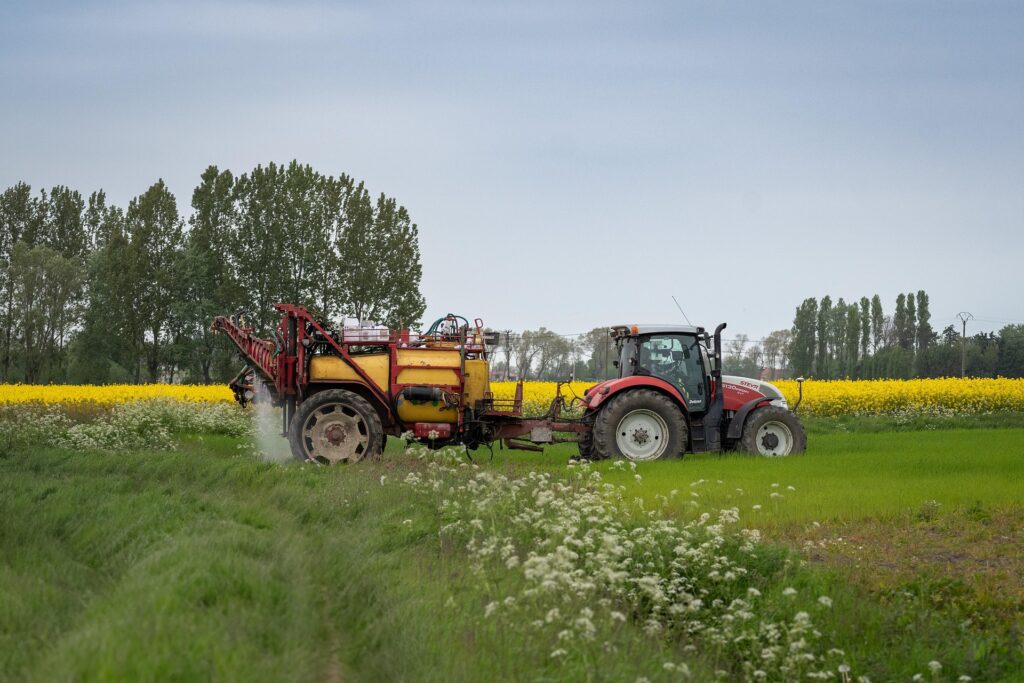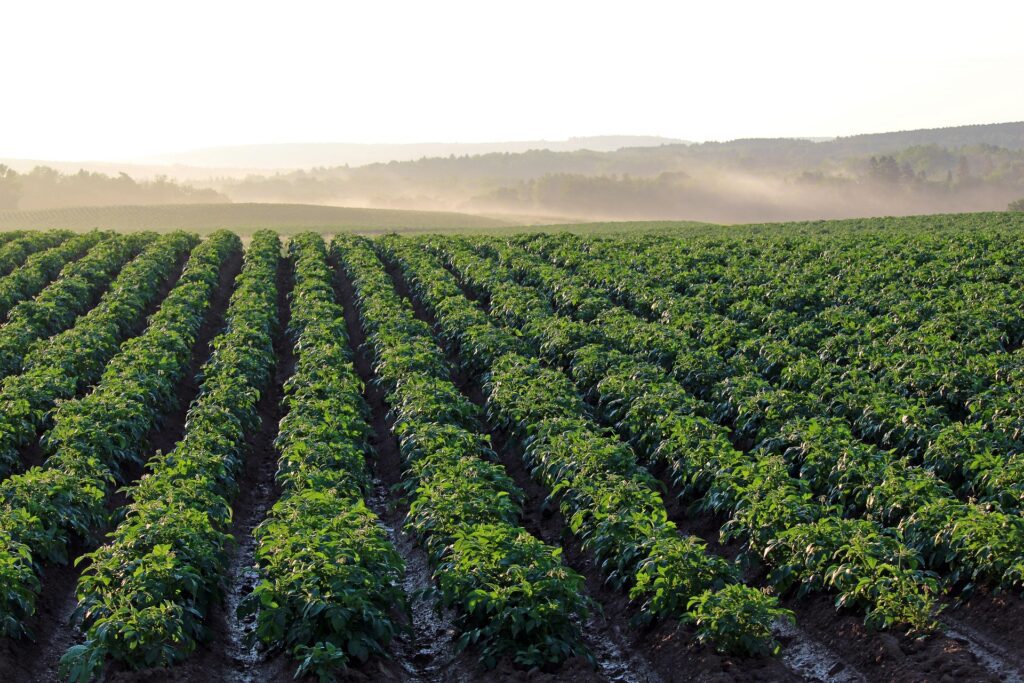Table of Contents
Introduction
In a nation where the aroma of fertile soil mingles with the dreams of billions, agriculture stands tall as the backbone of our economy. India, a land of diverse landscapes and rich agricultural heritage, owes much of its prosperity to the tireless efforts of farmers and agricultural professionals. As our population continues to grow, the importance of sustainable and efficient agricultural practices becomes ever more critical. In this context, a BSc in Agriculture emerges as a pivotal pathway to a promising future, offering a plethora of opportunities for personal and professional growth.Bsc agriculture
Agriculture contributes significantly to India’s Gross Domestic Product (GDP). The sector provides livelihoods for a large portion of the population and ensures food security for the nation. Given its critical role, the demand for skilled professionals in agriculture is constantly increasing. A BSc in Agriculture serves as the perfect launchpad for individuals aspiring to make a meaningful impact in this vital sector. This blog post delves into the expansive scope of a BSc Agriculture degree, exploring the diverse career opportunities it unlocks, the potential earnings it promises, and the overall transformative impact it can have on one’s life.Bsc agriculture

What is BSc Agriculture?
BSc Agriculture, or Bachelor of Science in Agriculture, is a comprehensive four-year undergraduate program designed to equip students with a robust understanding of agricultural practices, scientific principles, and modern technologies. The program combines theoretical knowledge with hands-on practical experience, ensuring that graduates are well-prepared to tackle the challenges and opportunities within the agricultural sector. Bsc agriculture
The curriculum is structured to cover a broad range of subjects, including agricultural and soil science, crop production, horticulture, animal husbandry, agricultural economics, and agribusiness management.The multidisciplinary nature of the BSc Agriculture program allows students to gain expertise in various specialized areas, such as:Bsc agriculture
- Agronomy: The science and technology of producing and using plants for food, fuel, feed, and fiber. Agronomists study soil management, crop production, and sustainable farming practices.
- Horticulture: The art and science of growing fruits, vegetables, flowers, and ornamental plants. Horticulturists focus on improving crop yields, quality, and nutritional value.
- Soil Science: The study of soil as a natural resource, including its formation, classification, and management. Soil scientists analyze soil properties to optimize crop production and ensure environmental sustainability.
- Agricultural Economics: The application of economic principles to agricultural production and marketing. Agricultural economists analyze market trends, assess economic policies, and develop strategies to improve farm profitability.
- Animal Husbandry: The science and practice of breeding, feeding, and caring for domestic animals. Animal husbandry experts focus on improving livestock production, health, and welfare.
- Plant Pathology: The study of plant diseases and their control. Plant pathologists diagnose plant diseases, develop disease management strategies, and conduct research to improve plant health.
- Entomology: The study of insects and their impact on agriculture. Entomologists identify insect pests, develop integrated pest management strategies, and conduct research to minimize crop damage.
- Agricultural Engineering: The application of engineering principles to agricultural production. Agricultural engineers design and develop agricultural machinery, irrigation systems, and other technologies to improve efficiency and productivity.
In addition to these core subjects, students also delve into related fields such as Zoology, Rural Development, and Environmental Health, providing a holistic understanding of the interconnectedness between agriculture and society. The comprehensive nature of the BSc Agriculture program ensures that graduates are well-versed in all aspects of agriculture, making them highly sought after by employers in both the public and private sectors.
Career Opportunities in Agriculture
A BSc Agriculture degree opens doors to a wide array of career opportunities in both the government and private sectors. The demand for skilled agricultural professionals is on the rise, driven by the need to increase agricultural productivity, promote sustainable farming practices, and ensure food security for the growing population. Here’s a detailed look at some of the most promising career paths available to BSc Agriculture graduates:Government Sector Jobs:
- Agriculture Development Officer (ADO): ADOs play a crucial role in implementing government agricultural policies and programs at the grassroots level. They work closely with farmers, providing guidance on modern farming techniques, crop selection, and pest management.
- ADOs also conduct field visits, organize training programs, and disseminate information on government schemes and subsidies. Their primary goal is to improve agricultural productivity and uplift the socio-economic conditions of farmers.
- Block Development Officer (BDO): BDOs are responsible for overseeing the implementation of various development programs in a block, including agriculture, rural development, and poverty alleviation. They coordinate with different government departments, NGOs, and community organizations to ensure the effective implementation of these programs.
- BDOs also monitor progress, resolve conflicts, and provide administrative support to local communities. Their role is crucial in promoting integrated rural development and improving the quality of life for rural residents.
- Agriculture Officer: Agriculture Officers are employed by state and central government departments to promote agricultural development and implement government policies. They conduct research, provide technical advice to farmers, and monitor crop production
- . Agriculture Officers also play a key role in promoting sustainable farming practices, such as organic farming, integrated pest management, and water conservation. Their expertise is vital in enhancing agricultural productivity and ensuring environmental sustainability.
- Agriculture Research Scientist: Agriculture Research Scientists conduct research to improve crop yields, develop new varieties of crops, and enhance agricultural technologies. They work in research institutions, universities, and government laboratories, conducting experiments, analyzing data, and publishing research findings.
- Agriculture Research Scientists play a pivotal role in advancing agricultural knowledge and developing innovative solutions to address the challenges facing the agricultural sector.
- Forest Officer: Forest Officers are responsible for managing and protecting forests and wildlife. They work in forest departments, national parks, and wildlife sanctuaries, implementing conservation programs, monitoring wildlife populations, and enforcing forestry laws.
- Forest Officers also conduct research, educate the public about the importance of forests, and promote sustainable forest management practices. Their work is essential in preserving biodiversity and ensuring the long-term health of our forests.
- Other Government Jobs: In addition to the above, BSc Agriculture graduates can also find employment in various other government departments, such as the Food Corporation of India (FCI), the National Bank for Agriculture and Rural Development (NABARD), and the State Farms Corporation of India (SFCI). These organizations offer opportunities in areas such as procurement, storage, distribution, and financing of agricultural commodities.


Private Sector Jobs:
- Agricultural Consultant: Agricultural Consultants provide expert advice and guidance to farmers, agribusinesses, and other stakeholders in the agricultural sector. They assess farm operations, identify problems, and develop solutions to improve productivity, efficiency, and profitability. Agricultural Consultants may specialize in areas such as crop production, irrigation, pest management, or farm management.
- Their expertise is invaluable in helping farmers adopt modern technologies and sustainable practices.
- Agricultural Engineer: Agricultural Engineers apply engineering principles to design and develop agricultural machinery, irrigation systems, and other technologies to improve agricultural production. They work for manufacturers of agricultural equipment, consulting firms, and government agencies, developing innovative solutions to address the challenges facing the agricultural sector.
- Agricultural Engineers play a crucial role in enhancing efficiency, reducing costs, and improving the sustainability of agricultural operations.
- Agronomist: Agronomists are experts in crop production and soil management. They study soil properties, analyze crop requirements, and develop strategies to optimize crop yields and quality. Agronomists work for seed companies, fertilizer manufacturers, and agricultural consulting firms, providing technical advice to farmers and conducting research to improve crop production practices. Their expertise is essential in ensuring food security and promoting sustainable agriculture.
- Farm Manager: Farm Managers are responsible for overseeing the day-to-day operations of a farm. They plan and coordinate planting, harvesting, and marketing activities, manage farm workers, and maintain farm equipment. Farm Managers also monitor crop yields, control pests and diseases, and ensure the efficient use of resources. Their role is critical in maximizing farm productivity and profitability.
- Plant Nutritionist: Plant Nutritionists specialize in the study of plant nutrition and fertilizer management. They analyze soil and plant tissue samples, diagnose nutrient deficiencies, and develop fertilizer recommendations to optimize crop growth.
- Plant Nutritionists work for fertilizer companies, agricultural consulting firms, and research institutions, providing technical advice to farmers and conducting research to improve fertilizer use efficiency.
- Crop Scientist: Crop Scientists conduct research to improve crop varieties, develop new farming techniques, and enhance crop protection strategies.
- They work in research institutions, universities, and seed companies, conducting experiments, analyzing data, and publishing research findings. Crop Scientists play a vital role in advancing agricultural knowledge and developing innovative solutions to address the challenges facing the agricultural sector.
The agriculture industry is undergoing a significant transformation, driven by technological advancements, changing consumer preferences, and increasing environmental concerns. This transformation has created a growing demand for skilled professionals who can adapt to new technologies, develop sustainable farming practices, and meet the evolving needs of the market. A BSc Agriculture degree equips graduates with the knowledge and skills needed to thrive in this dynamic environment, making them highly sought after by employers in both the public and private sectors.


Salary Expectations
One of the key considerations for prospective students is the potential earning potential of a BSc Agriculture degree. While salary levels can vary depending on factors such as experience, location, and the specific employer, a BSc Agriculture degree generally offers competitive salaries and promising career advancement opportunities. Here’s a general overview of salary expectations for some of the common job profiles:
- Agriculture Officer: The average salary for an Agriculture Officer in India ranges from INR 4.7 LPA (Lakhs Per Annum). With experience and additional qualifications, the salary can increase significantly.
- Agriculture Research Scientist: Agriculture Research Scientists can expect to earn between INR 6 to 7 LPA in the initial years of their career. Senior researchers with extensive experience and publications can command higher salaries.
- Forest Officer: Forest Officers typically earn between INR 8 to 9.5 LPA, depending on their rank and experience. Forest Officers in senior positions can earn significantly more.
- Other Job Profiles: Salaries for other job profiles, such as Agricultural Consultant, Agronomist, and Farm Manager, can vary depending on the size of the organization, the level of experience, and the specific responsibilities of the role. However, in general, a BSc Agriculture degree offers competitive salaries and excellent career prospects.
It’s important to note that these salary figures are indicative and can vary depending on various factors. However, a BSc Agriculture degree is a valuable investment in one’s future, offering the potential for a rewarding and financially secure career.
Skills and Knowledge Gained
A BSc Agriculture program is designed to provide students with a comprehensive understanding of agricultural practices, scientific principles, and modern technologies. The program equips graduates with a wide range of skills and knowledge that are essential for success in the agricultural sector. Here are some of the key skills and knowledge that students gain during a BSc Agriculture program:
- Agri-business Management: Students learn the principles of business management and their application to the agricultural sector. They develop skills in areas such as financial management, marketing, and supply chain management.
- Research and Development: Students gain experience in conducting research, analyzing data, and developing new agricultural technologies. They learn how to design experiments, collect data, and interpret results.
- Soil Science: Students develop a deep understanding of soil properties, soil fertility, and soil management practices. They learn how to analyze soil samples, diagnose nutrient deficiencies, and develop fertilizer recommendations.
- Crop Production: Students learn the principles of crop production, including crop selection, planting, irrigation, pest management, and harvesting. They gain hands-on experience in growing a variety of crops.
- Horticulture: Students learn the art and science of growing fruits, vegetables, flowers, and ornamental plants. They develop skills in areas such as pruning, grafting, and landscaping.
- Animal Husbandry: Students learn the principles of animal husbandry, including breeding, feeding, and caring for domestic animals. They gain hands-on experience in managing livestock and poultry.
- Communication Skills: Students develop strong communication skills, both written and oral. They learn how to communicate effectively with farmers, government officials, and other stakeholders in the agricultural sector.
- Problem-Solving Skills: Students develop strong problem-solving skills, which are essential for addressing the challenges facing the agricultural sector. They learn how to identify problems, analyze data, and develop solutions.
These skills and knowledge are highly valued by employers in both the public and private sectors, making BSc Agriculture graduates highly sought after in the job market.
Further Education
A BSc Agriculture degree is a solid foundation for a successful career in the agricultural sector. However, for those who wish to further enhance their knowledge and career prospects, there are several options for further education.
- MSc Agriculture: An MSc Agriculture program allows students to specialize in a particular area of agriculture, such as agronomy, horticulture, soil science, or agricultural economics. An MSc degree can lead to advanced research positions, teaching positions, and other specialized roles.
- MBA in Agribusiness: An MBA in Agribusiness is a specialized business degree that focuses on the management of agricultural businesses. This degree is ideal for those who wish to pursue careers in agribusiness management, marketing, or finance.
- PhD in Agriculture: A PhD in Agriculture is a research-oriented degree that prepares students for careers in academia, research institutions, and government agencies. A PhD degree is required for those who wish to become professors or research scientists.
In addition to these formal degree programs, there are also numerous short-term courses and certifications that can enhance one’s skills and knowledge in a specific area of agriculture.
The Impact of Agriculture on the Economy
Agriculture is the backbone of the Indian economy, contributing significantly to the GDP and providing livelihoods for a large portion of the population. The agricultural sector is also a major source of raw materials for various industries, such as food processing, textiles, and sugar.The importance of agriculture to the Indian economy cannot be overstated.
Agriculture provides food security for the nation, supports rural livelihoods, and contributes to economic growth. The government of India has recognized the importance of agriculture and has implemented various policies and programs to promote agricultural development.
These programs include subsidies for fertilizers and irrigation, credit facilities for farmers, and infrastructure development projects.Advancements in agriculture can have a significant impact on the economy. Increased agricultural productivity can lead to higher incomes for farmers, lower food prices for consumers, and increased exports. Sustainable agricultural practices can protect the environment, conserve natural resources, and improve the long-term health of the agricultural sector.


Self-Employment Opportunities
In addition to traditional employment opportunities, a BSc Agriculture degree can also open doors to self-employment opportunities. With the right skills and knowledge, graduates can start their own businesses in areas such as:
- Agricultural Consulting: Providing expert advice and guidance to farmers on crop production, soil management, and pest management.
- Farm Management: Managing farms for absentee landowners or corporations.
- Organic Farming: Growing and selling organic produce.
- Nursery Management: Growing and selling plants and trees.
- Seed Production: Producing and selling seeds.
- Mushroom Cultivation: Growing and selling mushrooms.
- Beekeeping: Producing and selling honey and other bee products.
- Dairy Farming: Producing and selling milk and other dairy products.
- Poultry Farming: Producing and selling eggs and poultry meat.
Self-employment can be a challenging but rewarding career path. It requires a strong work ethic, business acumen, and a passion for agriculture. However, for those who are willing to take the risk, self-employment can offer the opportunity to be your own boss, set your own hours, and make a real difference in the agricultural sector.


Conclusion
In conclusion, a BSc Agriculture degree is a valuable investment in one’s future, offering a wide range of opportunities for personal and professional growth. The program provides students with a comprehensive understanding of agricultural practices, scientific principles, and modern technologies, equipping them with the skills and knowledge needed to thrive in the agricultural sector.
A BSc Agriculture degree opens doors to a variety of career paths in both the government and private sectors, offering competitive salaries and promising career advancement opportunities. Graduates can work as Agriculture Development Officers, Agriculture Research Scientists, Farm Managers, Agricultural Consultants, and many other roles.
In addition to traditional employment opportunities, a BSc Agriculture degree can also lead to self-employment opportunities. Graduates can start their own businesses in areas such as agricultural consulting, farm management, organic farming, and seed production.
The agricultural sector is undergoing a significant transformation, driven by technological advancements, changing consumer preferences, and increasing environmental concerns. This transformation has created a growing demand for skilled professionals who can adapt to new technologies, develop sustainable farming practices, and meet the evolving needs of the market.
A BSc Agriculture degree equips graduates with the knowledge and skills needed to thrive in this dynamic environment.If you are passionate about agriculture and want to make a meaningful impact on the world, a BSc Agriculture degree may be the perfect path for you. It offers the opportunity to contribute to a vital sector of the economy, improve food security, and promote sustainable agricultural practices. Consider a BSc Agriculture as a pathway to a successful and fulfilling career.